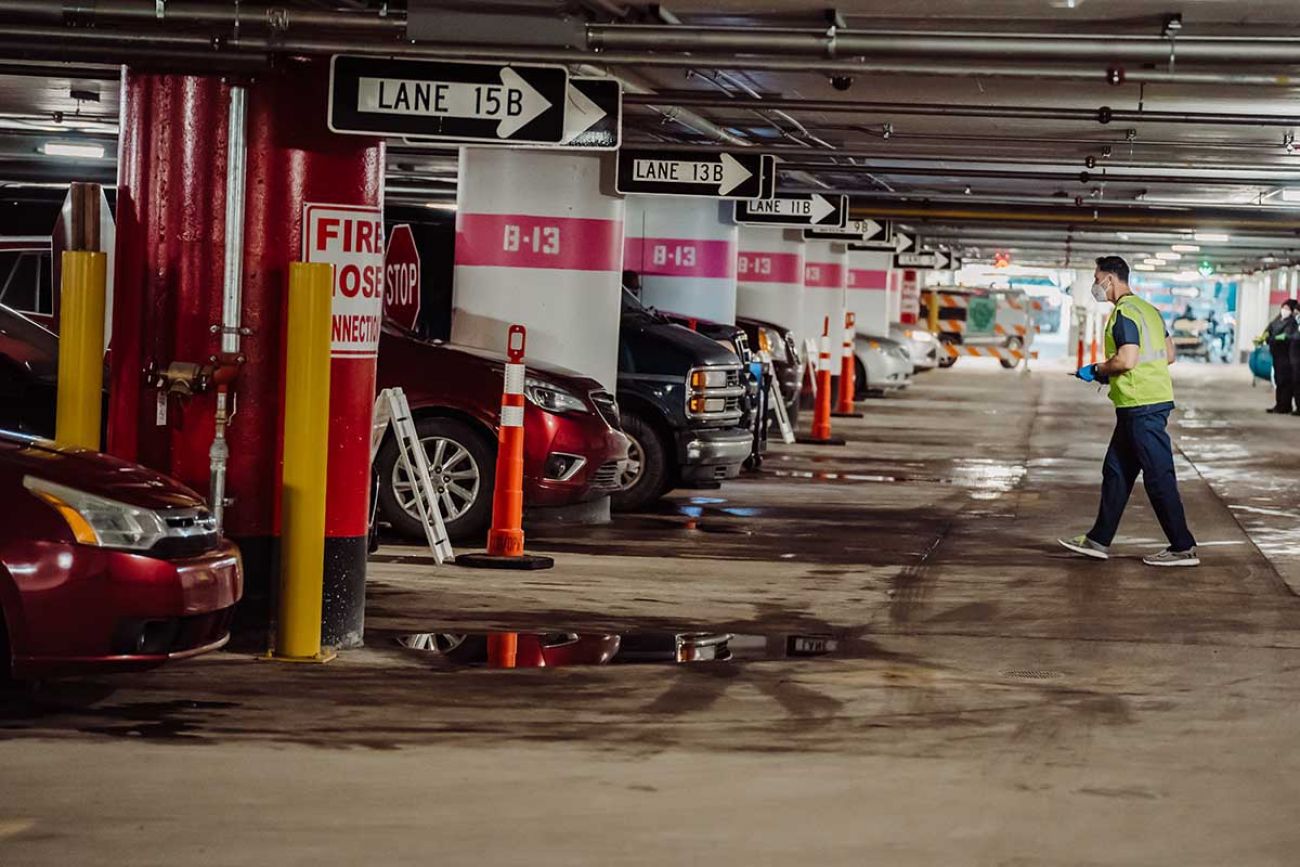Frustrations mount as COVID vaccine more available in some parts of Michigan

Donna Cugini is a persistent Michigan vaccine warrior, checking online every day in search of a shot in the arm.
But Cugini, 82, has had no luck — not with her doctor, her local health department nor with area pharmacies in the western Upper Peninsula where she lives.
And then, when she reads that in Detroit the city is now vaccinating, regardless of age, food service workers and others, she does a slow burn.
“It drives me insane,” said Cugini, who retired from the U.S. Department of Justice in Detroit as a legal assistant.
Two months after vaccine distribution started, Cugini is one of 63 percent of those older than 75 who have yet to be inoculated. And while the vaccination effort is improving, the inability of seniors to get shots is one of several equity concerns that remain about the program.
State officials say they are working to ensure fairness, taking steps to increase availability in communities like Detroit that were hit hardest by COVID-19 and those without transportation or widespread Internet access.
- Related: How do I get a COVID vaccine in Michigan? Tips for seniors
- COVID vaccine questions? On Feb. 25, ask Joneigh Khaldun, Linda Vail
But that prompted equity questions of its own, since some counties receive a larger share than others. Complaints have come from state legislators, Macomb County Executive Mark Hackel and Wayne County Executive Warren Evans about whether the state is picking and choosing vaccination winners.
Gov. Gretchen Whitmer’s distribution model involves a mix of science and subjectivity, weighing population and other factors, including the number of older residents in a community and those in poverty, two groups that have been hard hit by the pandemic.
The state also considers a community’s “social vulnerability” — an index compiled by the Centers for Disease Control and Prevention taken from 15 factors including poverty, health issues and languages spoken.
Without using the index, a community with 10 percent of the population would get 10 percent of the vaccines, according to the state. But in an effort to address disparities rooted in poverty, age and health conditions, the state is taking into account the size of those vulnerable communities.
While the state hasn’t given the exact formula, officials did provide an example: Detroit, has one of the biggest vulnerable populations in the state, would get 5 percent more vaccines than its population alone would warrant.
Hackel and others have noted that Detroit is using its vaccines to inoculate a wider range of people than seniors and frontline workers. The city also is giving shots to workers of all ages in the food service industry and some who work at the TCF Center, where its vaccination program is underway.
Overall, Detroit has 12 percent of the state’s COVID-19 deaths, despite comprising less than 7 percent of Michigan’s population. In a recent week, the city received double the vaccines than neighboring Macomb County, which has a higher population (873,000 to about 670,000 for Detroit.)
Detroit has reported it has vaccinated 4,000 grocery store employees and food workers, 7,100 teachers and school employees, nearly 4,000 healthcare providers, 3,300 first responders and 1,600 clergy members among the 60,000 doses it has administered.
John Roach, a spokesperson for Mayor Mike Duggan, said the city needs more doses and has had no problem filling the appointment slots.
“We're booking 3,000 vaccinations a day and we vaccinated 1,000 people at two churches over the weekend,” Roach wrote in an email to Bridge Michigan.
He said older non-residents of the city, those over 65, would not be eligible to get a vaccine through the city health department.
Demand exceeds supply
The discrepancies also proliferate statewide.
Luce, Schoolcraft and Otsego counties — all in northern Michigan or the Upper Peninsula — have gotten enough doses (over 26,000) to vaccinate over half of the 39,000 people who live in those counties.
But in others, including Livingston County in east-central Michigan, the doses shipped would only vaccinate 7 percent of the population.
In southeast Michigan, Macomb County has received doses equal to 13 percent of the population, while neighboring Oakland County’s share is equal to 19 percent.
When asked Wednesday about the differences in shipments between counties, Whitmer repeated what she and others have said for weeks: “What we have seen is there simply are not enough vaccines to meet demand right now.”
Michigan received nearly 2.3 million doses of the vaccine since mid-December, with over 1.2 million people getting at least the first dose and, of those, about 550,000 have gotten both.
The totals shipped include nearly 500,000 doses where no county is identified. The vast majority of those went to vaccinate residents and staff in nursing homes and other senior care facilities in counties all across Michigan.
Last week, Michigan ranked 31st in the nation in the rate of administering first doses, and 12th in the rate of administering the second dose.
Whitmer looked to the future Wednesday, saying that within a couple of months, the Biden administration has said supply will exceed demand. “That’ll be a different problem then and frankly a better problem,” she said.
But for those who have tried to remain safe by shrinking their lives, eschewing church and friends and family, it cannot come soon enough.
“I don’t feel like I can be places with people,” said Cugini, the Upper Peninsula resident.
Some success, some luck
Despite the grumbles, there have been successes.
Michigan, like most states, focused on vaccinating residents and staff at nursing homes and other long-term care facilities, where 37 percent of all COVID-19 deaths have occurred.
So far, residents and staff members at every long-term care facility have had a chance to get the first dose and most have had a clinic offering the second as well.
Kathy Knapman was one of those who was upset about the rollout. A resident of Cass County, the 65-year-old was playing the same game as Cugini, scrambling for an appointment.
She lives in a county with the second lowest rate of vaccinations, with just 7.5 percent of residents, 16 and older, getting a vaccine.
Neighboring Van Buren County, which shares a public health department with Cass County, has had 13.4 percent of residents vaccinated.
But Knapman finally got an appointment Wednesday and got her first shot. It was luck, she said: She happened to click on a website at just the right time and scored one of just three slots.
“I just happened to check,” she said.
Knapman said she understands that the state will focus on places like Detroit, where over 1,800 residents died.
“They got hit so hard,” Knapman said. “I thought they should be getting more (vaccines).”
And though the wait has been hard on Knapman — she’s not seen her 103-year-old mother in person in over a year — she is optimistic and said she understands manufacturing limitations from Pfizer-BioNTech and Moderna.
“A lot of people have signed up (for the vaccine) and they are patiently waiting,” she said. “They can only put out so much.
See what new members are saying about why they donated to Bridge Michigan:
- “In order for this information to be accurate and unbiased it must be underwritten by its readers, not by special interests.” - Larry S.
- “Not many other media sources report on the topics Bridge does.” - Susan B.
- “Your journalism is outstanding and rare these days.” - Mark S.
If you want to ensure the future of nonpartisan, nonprofit Michigan journalism, please become a member today. You, too, will be asked why you donated and maybe we'll feature your quote next time!







